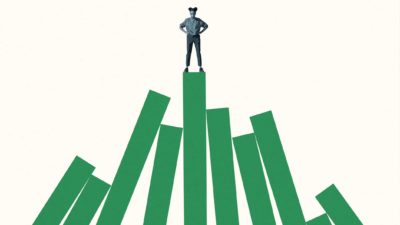The S&P/ASX 200 Index (ASX: XJO) rose by almost 0.5% today with the ASX continuing to climb.
There was one major plunge on the ASX:
Mesoblast Limited (ASX: MSB) share price crashes lower by 30.6%
Mesoblast released an announcement today on the scheduled meeting of the Oncologic Drugs Advisory Committee (ODAC) of the US FDA for the approval of Ryoncil in the treatment of steroid-refractory acute graft versus host disease in children.
The meeting is scheduled to take place on 13 August 2020. The ODAC will vote on whether the available data support the efficacy of the treatment of patients.
However, the US healthcare regulator released a document which seemed to cast doubt on whether Mesoblast will get approval, which is why the ASX 200 share dropped so hard.
According to the briefing, the FDA has concerns about the clinical performance of the drug product (DP).
It stated: "FDA's position is that the product attributes the Applicant has identified as related to potency and activity, however, do not have a demonstrated relationship to the clinical performance of specific DP lots, and that the product's proposed immunomodulatory mechanism of action has not been demonstrated in vivo in study subjects receiving remestemcel-L."
"Without a demonstrated relationship with clinical effectiveness and/or in vivo potency/activity, controlling these CQAs [critical quality attributes] may not be sufficient to ensure the manufacturing process consistently produces remestemcel-L lots of acceptable quality."
Challenger Ltd (ASX: CGF) share price drops 7.6%
Challenger announced a troubled FY20 result today which showed a statutory loss after tax of $416 million after significant investment declines in its 'life' business due to the pandemic market sell-off.
Normalised net profit before tax was down 8% to $507 million and normalised net profit after tax was down 13% to $344 million.
Challenger's assets under management (AUM) went up 4% to $85.2 billion. With funds management net flows of $2.5 billion. Life sales went up 13% during the year.
Challenger CEO and managing director Richard Howes said: "Our domestic annuities sales continue to be impacted by structural changes to the wealth management market, and this year have been additionally affected by new age pension means test rules and the COVID-19 disruption. We are quickly evolving our business in response to the changes, and we are seeing positive signs that we are well positioned to rebuild momentum in the new market environment. One example is the growth we are now achieving in lifetime annuity sales via independent financial advisers."
The board of the ASX 200 share decided not to pay a final FY20 dividend. There is still a lot of uncertainty. The company wants to ensure it remains robust during this period.
In FY21 the company is expecting normalised net profit before tax in the range of $390 million to $440 million.
Sydney Airport Holdings Pty Ltd (ASX: SYD) FY20 result and capital raising
Sydney Airport is looking to raise $2 billion in a capital raising. Existing shareholders will be able to buy one new Sydney Airport security for every 5.15 securities at a price of $4.56 per new share. The new shares are being offered at a 13.2% discount to the theoretical ex-entitlement price of $5.26.
The money will be used to pay down the ASX 200 share's debt, strengthen the balance sheet, maintain its investment grade credit rating and increase the liquidity available. Sydney Airport will have a lot of liquidity after the raising. But the company is reducing its capital expenditure plans.
Sydney Airport reported a loss after income tax of $53.6 million. Net operating receipts dropped 79% to $90.4 million and earnings before interest, tax, depreciation and amortisation (EBITDA) was down 35.4% to $300.4 million.
Total passengers in the first quarter of 2020 was down 18% to 9 million. Total passengers in the second quarter was down 96.6% to 0.4 million.
Sydney Airport CEO Geoff Culbert said: "Sydney Airport is taking further decisive action to strengthen its balance sheet and to help ensure it remains well capitalised to meet the challenges presented by an uncertain COVID-19 operating environment, and to ensure it is positioned for growth in the future."








